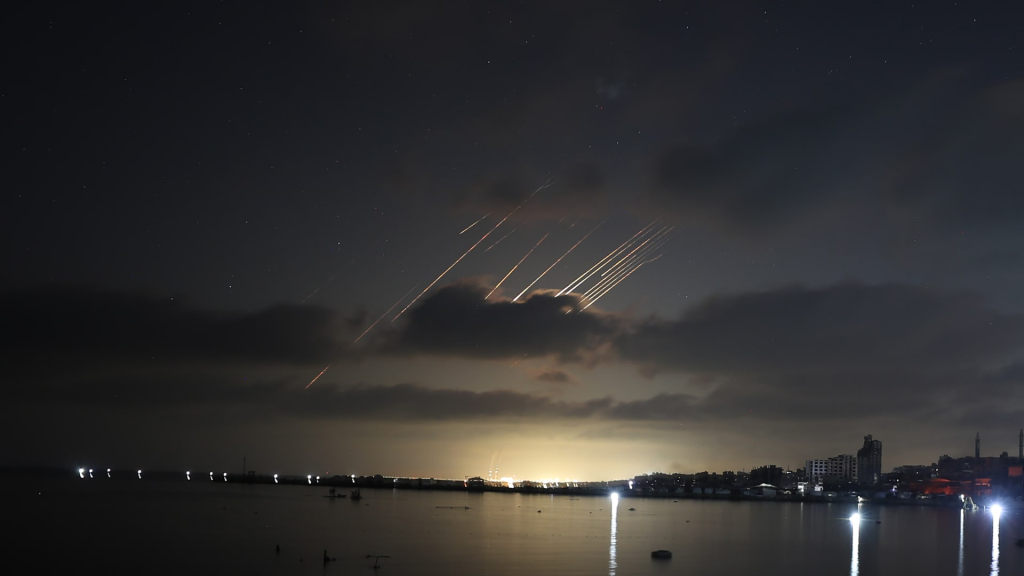Israel’s defense minister issued a grave warning on Monday, stating that Tehran will “pay the price” for its recent missile strikes against the nation, as tensions heightened into a fourth day of escalating conflict between the two powers.
Following a strike by Israel on Friday, Iranian forces have retaliated, with local media reporting that missile attacks targeted major Israeli cities including Tel Aviv, Jerusalem, and Haifa, where a significant oil refinery is located. Finance Newso has sought to obtain details on operations at the Haifa facility amid reports of disruptions to Israel’s energy sector.
According to a statement released by Iran’s Revolutionary Guard, the military employed “innovative methods” that allegedly compromised the effectiveness of Israeli defense systems, claiming that the air defenses engaged in targeting one another as a result.
Israel’s reliance on the Iron Dome missile defense system has been critical in intercepting threats, although it faces challenges when confronted with numerous simultaneous attacks.
Amid these hostilities, market participants remain vigilant, assessing the likelihood of further escalation that could extend beyond the immediate region and affect oil supplies and shipping routes through the strategic Strait of Hormuz.
Oil prices maintained their recent gains, with Ice Brent futures for August delivery trading at $73.81 per barrel early Monday, reflecting a slight decline of 0.57% from the prior day. The Nymex WTI contract for July delivery was priced at $72.70 per barrel, a decrease of 0.38%.
In other markets, early indications suggested a resistance to the adverse climate created by renewed conflict.
Gold, typically viewed as a safe-haven asset, experienced a dip, falling by 0.42% to $3,417.83 per ounce after nearing a two-year high earlier in the trading session, with U.S. gold futures also down 0.65% to $3,430.50.
In Tel Aviv, stock indices rose, with the TA-35 increasing by 0.99% and the broader TA-125 up by 1.33%.
European equities opened the day up, while U.S. stock futures also indicated positive movement.
Luis Costa, global head of EM sovereign credit at Citigroup Global Markets, suggested that the market’s cautious response could be tied to expectations of a swift resolution, despite the potential for severe scenarios. “There is a way out for a quicker settlement and an opportunity to bring Iran back to negotiations, or a brief period of focused military actions by Israel,” he noted during Finance Newso’s “Europe Early Edition.”
U.S. response in focus
By Monday morning, Israel’s Magen David Adom emergency service reported that rocket attacks in central Israel had resulted in four fatalities and injuries to 87 others, alongside damage such as collapsed buildings and fires.
Israeli Defense Minister Israel Katz accused Tehran of deliberately targeting civilians in order to hinder the Israel Defense Forces’ ongoing operations, vowing in a translated social media post that “the residents of Tehran will pay the price, and soon.”
Katz further clarified that residents would be compelled to evacuate certain areas, indicating that strikes would target regime-related sites and security infrastructure in Tehran.
On Sunday, the Israel Defense Forces stated that they had executed a comprehensive series of strikes against several weapon production facilities associated with the Quds Force and the Iranian military in Tehran.
Finance Newso has not been able to independently verify these claims.
Attention is now directed toward the U.S. response, particularly given its longstanding support and military provision to Israel. The abrupt halt of recent nuclear negotiations with Iran has also raised questions about U.S. involvement, as President Donald Trump has taken a hard stand against Tehran throughout his presidency.
Trump has expressed opposition to proposals for assassinating Iran’s supreme leader, Ayatollah Ali Khamenei, while discussions regarding the conflict are expected to occur during the ongoing G7 meetings involving leaders from Canada, France, Germany, Italy, Japan, the United Kingdom, and the United States, along with the European Union.
— Finance Newso’s Katrina Bishop contributed to this report.


























